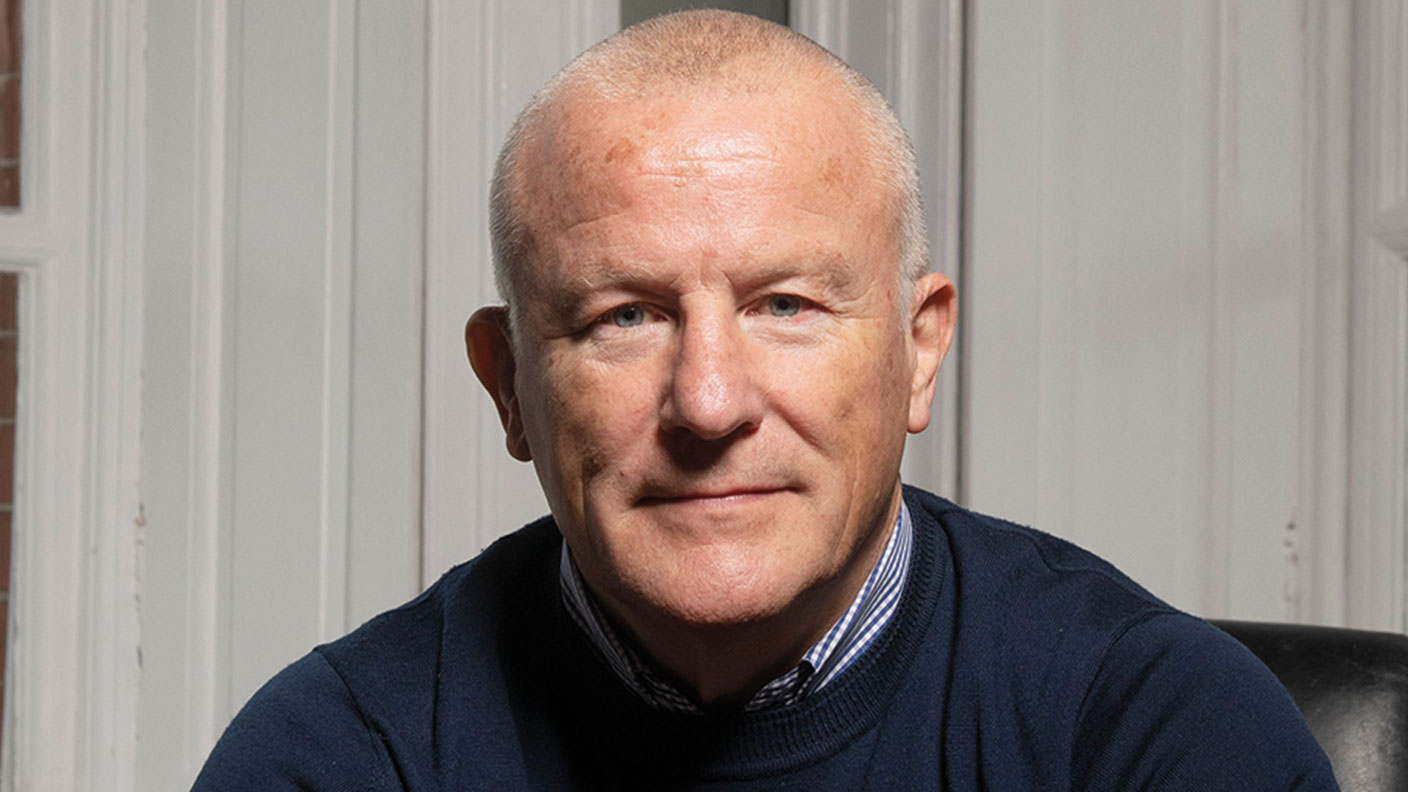What is Neil Woodford doing?
The much-celebrated fund manager is testing the patience of his investors, says Sarah Moore.
Get the latest financial news, insights and expert analysis from our award-winning MoneyWeek team, to help you understand what really matters when it comes to your finances.
You are now subscribed
Your newsletter sign-up was successful
Want to add more newsletters?

Twice daily
MoneyWeek
Get the latest financial news, insights and expert analysis from our award-winning MoneyWeek team, to help you understand what really matters when it comes to your finances.

Four times a week
Look After My Bills
Sign up to our free money-saving newsletter, filled with the latest news and expert advice to help you find the best tips and deals for managing your bills. Start saving today!

The much-celebrated fund manager is testing the patience of his investors.
Former star fund manager Neil Woodford has stirred up controversy yet again this week, after his Woodford Equity Income fund swapped five of its unlisted stocks for shares in Woodford's Patient Capital Investment Trust.
On the one hand, the move makes sense. It was always odd to have an equity income fund investing some of its money into unquoted companies that pay no dividends. It also makes a lot more sense to hold these sorts of illiquid assets within an investment trust that specialises in early stage companies, than within an open-ended fund. The latter can run into problems with illiquid assets if too many investors want their money back at once, which is almost certainly another factor behind the move, as we'll get to shortly.
MoneyWeek
Subscribe to MoneyWeek today and get your first six magazine issues absolutely FREE

Sign up to Money Morning
Don't miss the latest investment and personal finances news, market analysis, plus money-saving tips with our free twice-daily newsletter
Don't miss the latest investment and personal finances news, market analysis, plus money-saving tips with our free twice-daily newsletter
On the other hand, you can see why investors in the equity income fund might be upset. Like many investment trusts, Patient Capital trades at a discount to its net asset value (NAV the value of the underlying portfolio). At the time of the deal, this discount was 13%. So if you had bought the shares in the open market, you'd have paid around 87p for every £1 of NAV. Yet the fund didn't do this instead it paid the equivalent of the NAV for each share.
In other words, it overpaid by about 15%. Woodford and his representatives argue that the alternative (buying the shares in the market) would have been too expensive and time-consuming, and that they've paid "what the trust's assets are actually worth" but investors who were already wavering could be forgiven for considering this the final straw.
A big past to live up to
However, performance has deteriorated since, with the fund underperforming in each of the last three years. Unsurprisingly, this underperformance prompted investors to withdraw their cash the amount of money invested in Woodford Equity Income has more than halved to below £5bn since launch meaning that Woodford had to sell holdings in order to meet investor redemptions.
Given that it's harder to sell shares in unlisted companies quickly, this has meant that Woodford has had to sell down some of the portfolio's larger, more liquid holdings. As a result, the portfolio has ended up being much more heavily-weighted to smaller, riskier companies. At one point, the portfolio was more than 50% invested in FTSE 100 stocks; this proportion is now less than 20%.
Faith isn't always enough
If you still have faith in Woodford, hang on. If, instead, you're looking for a reliable income, you might look at the Troy Trojan Income fund, which yields 4.4% and topped insurer Sanlam's latest list of UK equity income funds.
Or if you specifically want to invest in early-stage life-sciences firms, you may instead choose to wait for shares in investment trust Syncona (LSE: SYNC), which has done very well in recent years, to trade at a lower premium to NAV (the premium is currently a massive 35%).
Activist watch
The activist investor has written to L Brands's chief executive and chairman, Leslie Wexner, arguing that Victoria's Secret could be "rejuvenated" by improving merchandise and updating its branding, and calling for board directors, including those with tenures of longer than 30 years, to be replaced. Wexner, who founded and has run L Brands for more than 50 years, controls roughly 17% of the shares. By contrast, Barington Capital owns under 1% of the company.
Short positions... cannabis ETF gets high
Biogen's offer of $25.5 per share represents a 70% premium to Nightstar's recent share price, though it is below the $26.42 peak hit last September. Syncona, which owns a 38.8% stake in Nightstar, has achieved a 4.5-times return on its £56.4m investment in the company. Syncona will not return any of the money to shareholders, but will use it to make further investments in its portfolio of 13 holdings and pipeline of new companies. The acquisition is also good news for fund manager Neil Woodford (see above): his equity income fund holds 0.25% of its assets in Nightstar.
The world's first cannabis exchange-traded fund (ETF) is set to become the second-most profitable ETF in Canada, says the Financial Times. The Horizons Marijuana Life Sciences Index fund has returned more than 50% so far in the year-to-date, amid a frenzy for cannabis-related stocks. The fund's high annual management charge (0.75%, high for an ETF, particularly compared to more general trackers) and ability to earn fees from lending stock (for cannabis sceptics to short-sell) means it is fast catching up to Canada's most profitable ETF, which is five times larger.
Get the latest financial news, insights and expert analysis from our award-winning MoneyWeek team, to help you understand what really matters when it comes to your finances.
Sarah was MoneyWeek's investment editor. She graduated from the University of Southampton with a BA in English and History, before going on to complete a graduate diploma in law at the College of Law in Guildford. She joined MoneyWeek in 2014 and writes on funds, personal finance, pensions and property.
-
 Should you buy an active ETF?
Should you buy an active ETF?ETFs are often mischaracterised as passive products, but they can be a convenient way to add active management to your portfolio
-
 Power up your pension before 5 April – easy ways to save before the tax year end
Power up your pension before 5 April – easy ways to save before the tax year endWith the end of the tax year looming, pension savers currently have a window to review and maximise what’s going into their retirement funds – we look at how
-
 Neil Woodford’s back – but has he really learned anything?
Neil Woodford’s back – but has he really learned anything?Opinion Disgraced fund manager Neil Woodford is planning a comeback. But he doesn’t seem to have learned much from his many mistakes. So why would anyone invest with him now?
-
 Neil Woodford’s back – but sometimes sorry isn’t enough
Neil Woodford’s back – but sometimes sorry isn’t enoughAdvice Neil Woodford’s funds blew up in 2019. Now he is on the comeback trail. But his apologies are unconvincing.
-
 Woodford investor? Your first payment is coming soon
Woodford investor? Your first payment is coming soonNews Private investors left stranded by the collapse of the Woodford Equity Income fund will soon be getting at least some of their money back. But they will have to wait a while longer to see how much more – if any – they will receive.
-
 Neil Woodford continues to cast a shadow over his successor at Invesco
Neil Woodford continues to cast a shadow over his successor at InvescoFeatures Mark Barnett, former star manager Neil Woodford’s successor at Invesco, has applied the same formula, and is struggling.
-
 Is it time to buy Patient Capital Trust?
Is it time to buy Patient Capital Trust?Features Neil Woodford’s Patient Capital Trust has been taken over by asset manager Schroders. The share price has surged - but should you buy in? John Stepek looks at the trust’s prospects.
-
 Neil Woodford: no silver lining for his investors
Neil Woodford: no silver lining for his investorsEditor's letter Neil Woodford made every mistake it is possible to make as a money manager. And his investors have been stiffed. But however wrong it all went, Woodford never stopped taking the fees.
-
 Woodford believed his own hype – now his investors are paying the price
Woodford believed his own hype – now his investors are paying the priceFeatures Neil Woodford was once one of the brightest stars in Britain’s investment firmament. Then he came crashing down to earth. John Stepek explains what went wrong.
-
 Woodford’s empire collapses – what happens to his investors now?
Woodford’s empire collapses – what happens to his investors now?Features With Neil Woodford getting his marching orders and his funds being shut down, John Stepek explains what it means for his former empire, and for those with money locked in.